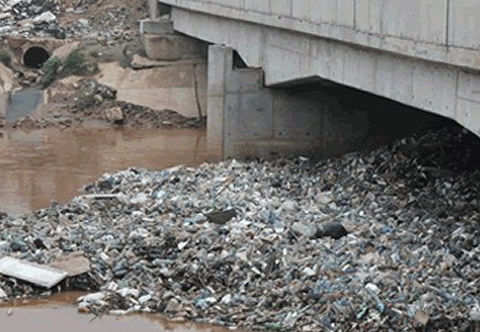Ghana ranks lowest in sanitation among lower-middle income countries despite $500m investment in WASH
 Ghana ranks lowest in sanitation levels among all lower middle income countries, although richer than a lot, Mr David Duncan, United Nations International Children’s Emergency Fund (UNICEF) Chief of Water Sanitation and Hygiene (WASH) has said.
Ghana ranks lowest in sanitation levels among all lower middle income countries, although richer than a lot, Mr David Duncan, United Nations International Children’s Emergency Fund (UNICEF) Chief of Water Sanitation and Hygiene (WASH) has said.
He said the nation was one of the lowest in terms of access to sanitation worldwide and that it was rather ironic she sunk lower than countries recovering from wars.
Mr Duncan was addressing Municipal and District Chief Executives, and other stakeholders at a meeting in Ho on the UNICEF WASH programme and said funding was not the problem, “but commitment and prioritization”.
He said “political will is the challenge and not household wealth, a change in behaviour and not only constructing toilets” and asked stakeholders to take challenging decisions, and make sanitation paramount in all policies.
Mr Duncan said thousands of children died from diarrhoea and that the nation lost about 290, and 79 million dollars annually to poor sanitation and open defecation respectively.
Open defecation rates had dropped by one per cent in 24 years and he said with such rate of improvement, it would take Ghana about 500 years to become Open Defecation Free (ODF).
Mr Duncan said although the nation had about 70 per cent access to improved water, a quarter of health facilities lacked water, whiles only two out of five schools had clean supplies, and three out of five had toilets.
He said the situation owed in part to a lack of maintenance, and non-payment of bills, adding that the nation risked having future generations with no access to water and sanitation.
Mr Duncan said nationally, only one out of five people washed their hands and that the rate of diarrhoea in children under five years old was highest in communities with unimproved sanitation facilities.
He said 3,385 infant mortalities were recorded which could be reduced by 25 per cent if birth attendants washed their hands with soap, and by 60 per cent if mothers did same.
About 90 per cent of Ghanaians had access to water but only a third drank quality water and Mr Duncan said UNICEF was supporting the drive for access to safe water by helping government make key decisions.
He said about 60 per cent of the populace used shared toilet facilities, 15 per cent used improved ones, six per cent unimproved, and 19 per cent practised open defecation and asked that toilets be built to withstand the weather, and be made affordable for the poor.
Mr Duncan further asked the private sector to drive the demand for improved sanitation by designing systems with modern technologies that would make them attractive.
Donors had contributed over $500 million towards WASH in Ghana, and he asked stakeholders to consider leveraging on internally generated funds as donor-funding declined in view of the country’s rising income status.
Mr Duncan said the Community-led Total Sanitation (CLTS) approach improved within three months of “incremental trials” and that there was the need to correlate behavioural change, sanitation marketing, and improved waste management.
WASH seeks to eliminate open defecation by 2020, attain universal access to affordable basic sanitation as well as universal equitable access to safe and affordable drinking water by 2025.
UNICEF had over the years helped over 2.25 million people in Ghana become ODF, supported over 500,000 in safely transporting, treating and storing water, as well as provided over 250,000 school children with school facilities.
The Organisation is helping government improve policies, strategies, and governance, and is also helping on a “National Emergency Awareness and Response Plan”.
Source: GNA
